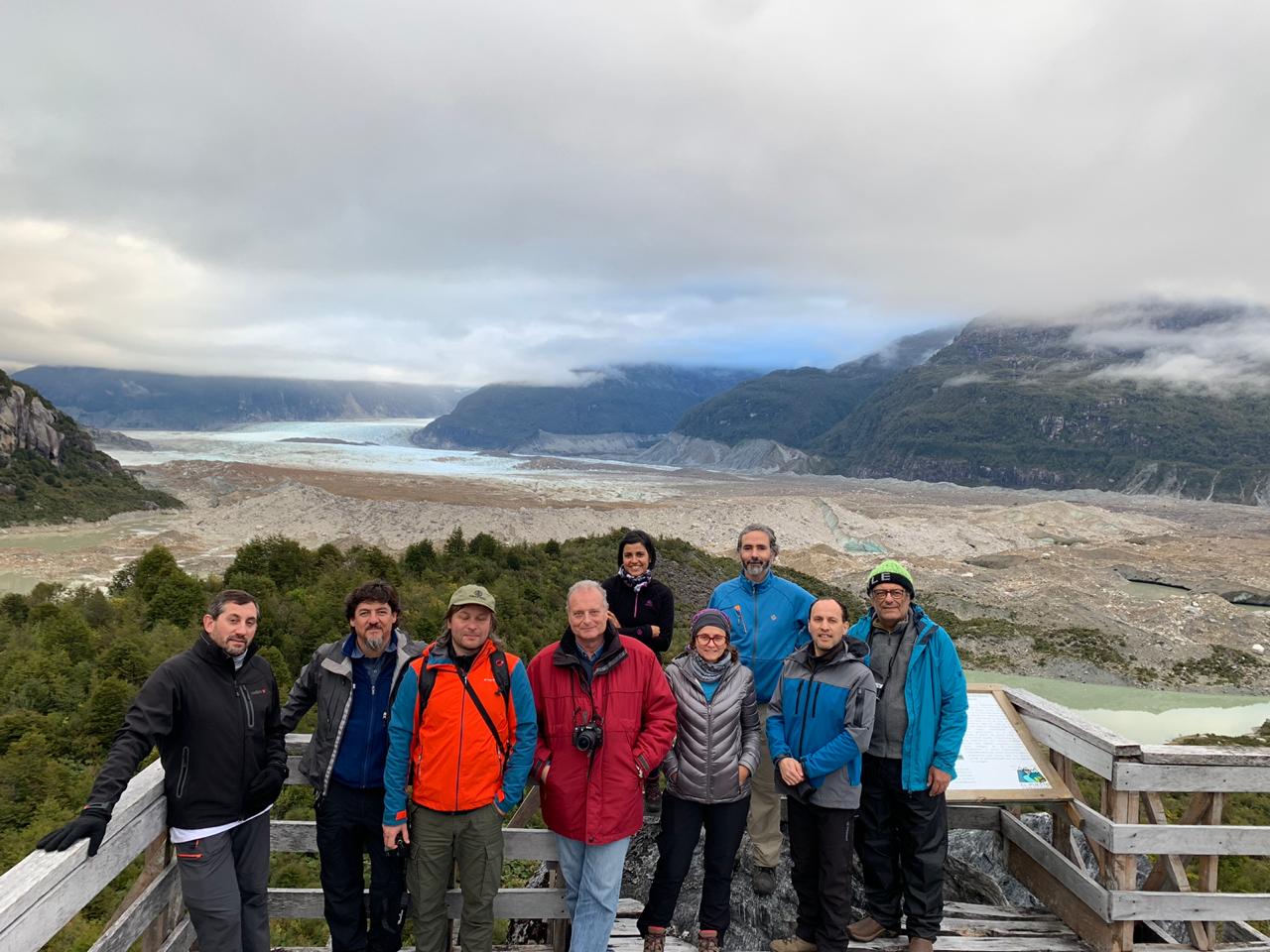The Office at Universidad Católica is consolidated as an important knowledge and support manager for UC researchers in its first five years. With more than a thousand Fondecyt projects awarded, around 900 experts from all areas of knowledge developing impact research, a powerful network of centers and fields stations throughout Chile, among other interesting facts.

Exploradores Glacier: Director María Elena Boisier together with a delegation of directors of research centers and stations of the European Union visiting the Patagonia Interdisciplinary Research Station.
“In 2015, and given the significant growth in research and doctorates at the University, the Upper Management made the decision to separate the office into two: Research and Doctorate, today Graduate School”, explained María Elena Boisier, Director of Research, who also assumed her position at that time.
Currently, the UC Office of Research conducts key interdisciplinary work at the university, advising UC experts in the presentation of projects, access to funding sources and institutional sponsorship, seeking development spaces for their ideas through its two sub-directorates: National and International. “This Office allowed to deepen the investigation with the academic units and the researchers; along with broadening our scope of action with a strategic perspective oriented to national and international sources of financing,” added Boisier.
Results in figures
The impact the Office has had in its first five years is seen in its results: More than 120.000 million Chilean pesos awarded in Fondecyt projects (Postdoc, Initiation and Regular); leadership in a third of the 41 Centers of Excellence at the national level; more than 10,000 publications and 6 regional centers and field stations. This allows us to continue producing border knowledge throughout the country, positioning ourselves in Chile and abroad.
“We are deeply gratified to be able to motivate academics to apply for more and more national funds, which position them in the country and now with the new UC Sub-Directorate for International Research, there will be more instances for our researchers abroad. Great challenges are coming in the subsequent years”, commented María Elena Boisier,Director of Research.
Democratization of knowledge
At the end of this first five-year period, the question arises as to what are the upcoming challenges in this new stage of the Office of Research, which will coincide with the new UC 2020-2025 Development Plan.
“Continuing with the work conducted during the last two years, we hope the consolidation of the Network of Regional Centers and Field Stations, as a gateway for international research to the country” comments Vice-President for Research Pedro Bouchon, “the Network is one of the pillars of the new Development Plan and I am sure that, with the support of the Office of Research, it will be able to design and implement with excellence a development plan that will consolidate it nationally and internationally“.
On the other hand, the Office has joined with other UC Offices and Units to promote the University’s Public Commitment through initiatives such as Cientifica la UC or Ciencia que se Comunica. “The democratization of knowledge through scientific dissemination initiatives that promote the social appropriation of science are tools that allow us to position certain issues in society. The recent social change should be seen as a historic opportunity for bi-directional science-society work, connecting the work of our UC researchers with decision makers to actively contribute to the construction of a society with greater well-being and equality”, added Bouchon.
Review the milestones of this first five-year period: